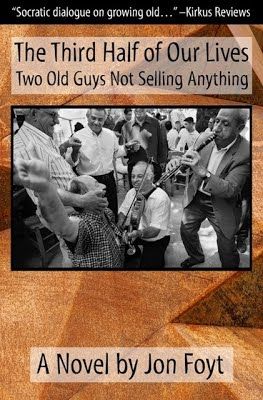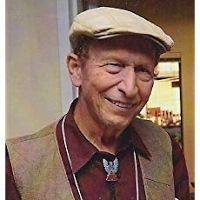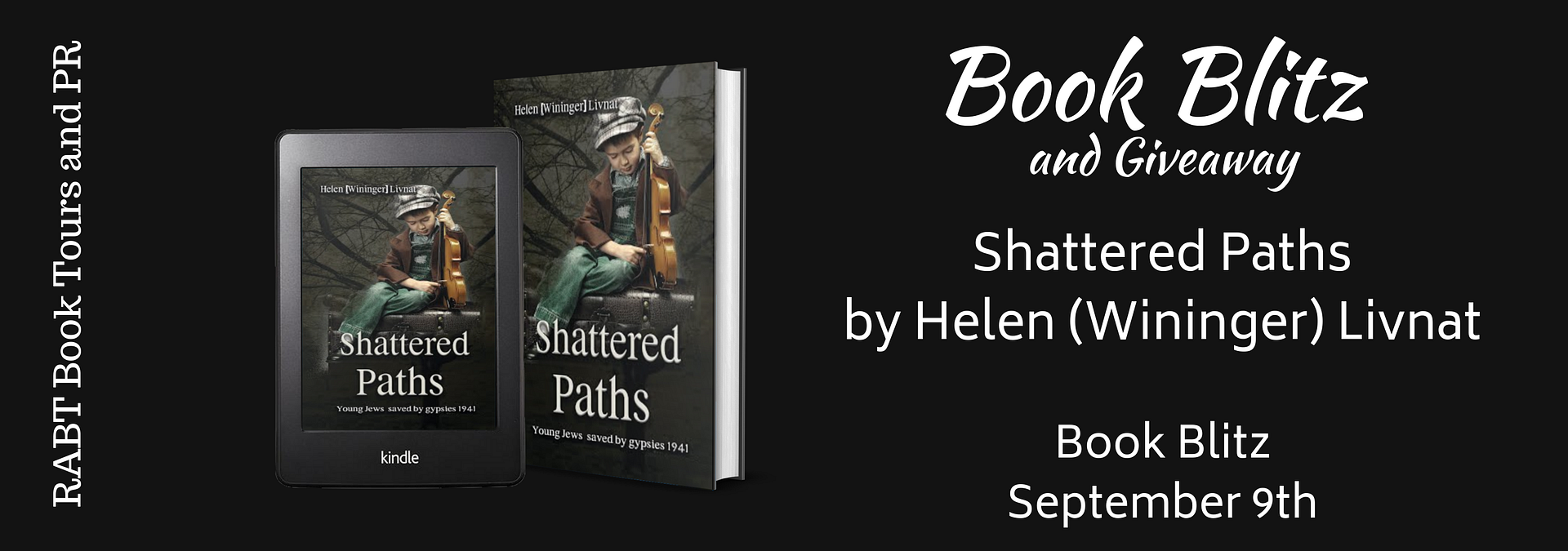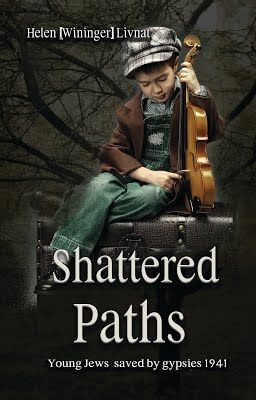When a homeless war veteran is beaten to death by the police, stormy protests ensue, engulfing a small New Jersey town. Soon after, three cops are gunned down.
A multi-state manhunt is underway for a cop killer on the loose. And Dr. Tessa Thorpe, a veteran's counselor, is caught up in the chase.
Donald Darfield, an African-American Iraqi war vet, war-time buddy of the beaten man, and one of Tessa's patients, is holed up in a mountain cabin. Tessa, acting on instinct, sets off to find him, but the swarm of law enforcement officers gets there first, leading to Darfield's dramatic capture.
Now, the only people separating him from the lethal needle of state justice are Tessa and ageing blind lawyer, Nathaniel Bodine. Can they untangle the web tightening around Darfield in time, when the press and the justice system are baying for revenge?
Book Links:
Goodreads * Amazon
Winner of Three Awards:
2019 American Fiction Award
National Indie Excellency Award - Best Legal Thriller of 2019
Silver Medal Winner 2019 - Readers' Favorites Awards
Chosen by Wiki.ezvid.com among their list of 10 Gripping and Intelligent Legal Thrillers
Silver Medal Winner 2019 - Readers' Favorites Awards
Chosen by Wiki.ezvid.com among their list of 10 Gripping and Intelligent Legal Thrillers
Reviews for Justice Gone:
The courtroom scenes are wonderfully written...the characters are well described and the author paints a picture of each in the mind of the reader...Strong plot, strong characters and a strong writing style that I really enjoyed. This one is a definite "thumbs-up." Strongly recommend! I look forward to reading additional works by N. Lombardi, Jr.
Kim M Aalaie, Author's Den
One of my favorite suspense novels of the year. It will make you question the legal system.
The Eclectic Review
The courtroom action is excellent, trimmed to the most gripping parts of the trial, with plenty of emotional impact...a fairly realistic portrayal of the way small-town US society works...a fast-moving story with plenty of dramatic moments, and a big twist in the final pages.
Crime Review
Read an Excerpt:
The Asarn County Courthouse was a cheap imitation mix of Roman and Greek architecture, with an excessive number of stairs to the entrance: a pair of oak doors flanked by classical columns bordered on the pretentious. Once inside, a sterile staircase with black trim beckoned upstairs against whitewashed walls that reached to a whitewashed ceiling. The whiteness was almost blinding. Even the courtroom had whitewashed walls.
The judge’s bench, actually a prodigiously high broad podium, was solid marble, impressively white as well, as was the wall behind it, on which the great seal of the jurisdiction and the New Jersey State flag were hung. In front of the bench, were the court clerk’s and court reporter’s tables. A mahogany balustrade kept the spectators separated from the court proceedings, and pew- style mahogany benches provided seats. Tessa and Casey sat in the first row. In front of them on the left was the prosecutor’s table, all three seats occupied by two men and a woman who were busy talking to each other and going through papers. To the right was the defendant’s table, all three seats empty.
The courtroom was soon packed and filled with restless murmuring.
Tessa was growing impatient. “Call the lawyer, he’s late.”
“I just called him five minutes ago, he said he was almost here,” Casey reminded her, with just a hint of irritation. He had already made it clear that he didn’t wish to be fully involved with Donald’s plight as he was running the risk of being overwhelmed at work. It was fine for Tessa to cancel all her appointments and take a vacation, so to speak, but he had other commitments to the clinic, being as he was the one who ran the day-to-day management of the Veteran’s Unit.
“Call him again,” Tessa said.
But just before Casey could, the double doors at the back of the courtroom swung open, and in stepped a most incongruous person. Late sixties, early seventies, he was dressed in a blacker than black, almost radiantly black, worsted three-piece suit, and at the neck of his crisp powder blue shirt was, of all things, a red bow tie.
I didn’t think men still wore those things, Tessa thought.
His head was just as remarkable, capped with a shock of flowing silky-white hair and a face that was dominated by a Colonel Sanders-style white beard and a pair of the blackest sunglasses imaginable. And, like the icing on a cake, he possessed a silver-studded ebony cane. His dark, noir-looking appearance contrasted against the brilliant white of the courtroom. He took two steps forward, swung his cane left and right, each time tapping the bench to his side, then strode confidently down the aisle before any more ado. Just as he reached the gate of the bar, he raised his cane, reached for the gate, swung it open, and took his seat at the defendant’s table.
Outside at that exact moment, the court’s deputies were bringing the hulking figure of Donald Darfield from the county jail and across the lawn to the county courthouse. The bright orange prison coveralls were nearly luminous against his sable complexion. He was handcuffed in front this time, but a chain bound the cuffs to a steel waist belt. His feet were shackled by iron rings linked with more chains. He had so many chains on him, his towering figure was reminiscent of King Kong being brought captive to the Big Apple. And just like the character in the film, he was hounded by reporters, not flashing their camera bulbs, but hurling stupid questions, the aim of which was to make him look their way so they could get a good shot.
“Hey Donald, anything to say? Now’s your chance!” “Darfield, did you kill those men?”
Back inside the courtroom, Tessa turned to Casey and whispered, “He’s blind.”
Casey shrugged his shoulders.
“How did he ever get through law school with all that required reading?”
“All rise,” came the throaty voice of the bailiff, who up to then had been standing inconspicuously to the side of the bench.
Everyone stood as the judge came in, a middle-aged man with a dispassionate face that made his black robes even more intimidating. He took his seat in the high chair. “The court of the great state of New Jersey is now in session.” He banged his gavel.
Everyone sat down except the court clerk, who handed the judge some papers while announcing, “Docket number 17479, People versus Donald Darfield.”
At this point a door on the far right side opened, and Donald Darfield was led in by the sheriff’s deputies and escorted to the defendant’s table, while both the county prosecutor and the blind lawyer stood up for the second time, the old man now standing alongside Darfield.
The old man turned his head to whisper to Darfield, “I’m your lawyer,” he said furtively. “Any objection to that?’
“No, sir.”
The judge swiveled his head to look at them. “Does the defendant have counsel?”
“I’m Mr. Darfield’s lawyer, Nathaniel Bodine, licensed to practice in the State of New Jersey.”
“Will the defendant state his name, please.”
“Donald…” Darfield croaked out. He cleared his throat before finishing. “Darfield.”
“Counselor,” the judge addressed, “do you waive the reading?”
The reading is a detailed public reading of the charges in the case. Typically, the answer would be yes, as a refusal to waive the reading is considered a serious breach of etiquette.
But Bodine replied, “No, Your Honor. Without wishing to bother the court, I haven’t had the chance to meet with my client yet, so I’d appreciate it…if it’s not too much trouble.”
The woman from the prosecutor’s table walked across to the defendant’s table, handing Bodine a manila file, which he opened.
The judge shifted some papers before him, then swiveled his head to the prosecution. “State?”
The prosecutor, a short man with a square head, wearing glasses and sporting a thick brown mustache, stood up. “Robert Murtaugh, deputy District Attorney, Asarn County. After preliminary review of the evidence, the State of New Jersey finds probable cause to pursue indictment of the following charges: three counts of murder in the first degree, three counts of attempted murder, four counts of recklessness endangerment, two counts of domestic terrorism—”
“Excuse me, Your Honor,” Bodine interjected. “I’m just glancing at the State’s complaint, and would like to clarify with Mr. Murtaugh if the attempted murder charges and the reckless endangerment charges refer to the same incidents, that is, the shots fired at the police vehicles at the time of apprehension.”
“Yes, Your Honor,” Murtaugh said, “plus one count attributed to the booby traps he laid out on private property not belonging…”
“Well, as for the shots fired, which is it going to be?” Bodine asked.
“Your Honor, we are still considering which charges to bring up to the grand jury, and this first appearance is chiefly to comply with New Jersey law that bail be set within twenty-four hours of arrest.”
“Very well,” the judge said, “then let’s move on to that. Mr. Murtaugh?”
“Your Honor,” Bodine interrupted once more, “defense waives consideration for a bail bond.”
“Very well.”
“However, I would like to make a motion at this time that my client be kept in solitary confinement until the convening of the grand jury, and in the event an indictment is brought, to be kept in solitary confinement until this matter is disposed. We feel this is for his own protection.”
“Have you discussed this with your client? Mr. Darfield, do you agree with this?”
Bodine nudged Darfield. “Say yes,” he whispered. “Yes,” Darfield replied diffidently to the judge.
“Very well, I so rule it. State is to set the date for the grand jury proceedings, not to exceed thirty days from today.” He banged his gavel. “Next case.”
As the armed court officers took hold of Darfield, Bodine turned and proceeded down the aisle in the same cautious pace as he entered it, using his cane minimally only to ensure against any careless person who happened to be in his way. Tessa and Casey followed in tow, through the corridor and down the stairs to the lobby.
Just in front of the oak doors leading outside, he was met by an attractive young woman with auburn hair wearing a yellow windbreaker and holding a Chesterfield topcoat in her arms. She draped the topcoat tenderly over his shoulders, embraced him affectionately, and took his right arm to lead him out. Tessa came from behind and tugged at his left arm. “Why did you waive bail?”
The pair abruptly halted, giving Bodine an opportunity to turn his head toward the voice. “And who are you?”
“Tessa Thorpe, I’m…”
Bodine interrupted, “Ah, yes, the heroine of the Darfield capture.” His voice turned even more sardonic. “And you want to discuss bail bonds with me now.” His face became rigid and his mouth turned down in a bitter grimace. “Bail Shmail! Did you know that in this state, just an example mind you, 38 percent of the people incarcerated are those that couldn’t meet their bail bond? Thirty-eight percent of the people in jail…and the overwhelming majority of them, what are they guilty of? I’ll tell you…unpaid parking tickets, driving with a suspended license, municipal violations, a few sticks of marijuana…none of whom pose a threat, and you want me to waste my time, the little precious time I have left in this world, to beg the judge for bail on someone who’s accused of multiple capital offences of first degree murder, shot at police officers in front of hundreds of witnesses, not to mention that he is not a resident of the local community, has no collateral and has no place to stay within the State of New Jersey, all of which disqualifies him from every criteria required for the judge to decide in favor of a bail bond. You want me, an advocate for just about thirty years to make a fool of myself…”
“Okay!” Tessa cried out. “I get your point.” She took a few deep breaths. “Why do you want Mr. Darfield in solitary? Why did you say ‘for his own protection’? Is someone going to do him harm?”
“Jailhouse snitches.”
Tessa remained quiet, cuing him to continue.
“I know a bit about you, Dr. Thorpe, and I realize you have some experience with prisons, but you know nothing about local jails. In a prison, stool pigeons are loathed, and run the risk of punishment by their fellow inmates, probably resulting in a shiv in the ribs…but those men have already been convicted and sentenced. However, for the occupants of a county jail, their trial is yet to come up. One can always plea bargain and make deals, conspire with the DA, make up stories…the number of innocent people convicted on such cockamamie testimony is appalling.”
Tessa found herself in a rare moment of speechlessness, giving him room to continue his rant.
“Now, I’m starting to get hungry and it’s a two-hour drive to New York where I have a lunch appointment, but before I can do that, I need to confer with my client, whom I have yet to meet properly, so despite the stimulating discussion we’re having, I have to go now. But before I do, I’ll answer your question. My wife.”
“Your wife? What question?”
“’How did he ever get through law school with all that required reading?’ I’m blind but I’m not deaf. The answer is my wife. She read aloud to me all the law books, court cases, Supreme Court opinions…whatever I had to know to pass the bar. But she’s getting on, and I need a new partner to keep up with me.” He nodded his head toward the young girl on his right. “By the way, Emily here is my co-counsel, as well as my daughter. And I would suggest that upon leaving, you go in the opposite direction from me, as there are hundreds of reporters out there; and, if we split them up, it would be to our mutual benefit.” He turned away from her to finally make his exit. “See you in court,” he said from behind his back, his daughter opening the doors and the both of them descending down the concrete stairs outside.
“Kind of longwinded, isn’t he?” Tessa opined.
Casey shrugged his shoulders. “He’s a lawyer,” was his response.
The judge’s bench, actually a prodigiously high broad podium, was solid marble, impressively white as well, as was the wall behind it, on which the great seal of the jurisdiction and the New Jersey State flag were hung. In front of the bench, were the court clerk’s and court reporter’s tables. A mahogany balustrade kept the spectators separated from the court proceedings, and pew- style mahogany benches provided seats. Tessa and Casey sat in the first row. In front of them on the left was the prosecutor’s table, all three seats occupied by two men and a woman who were busy talking to each other and going through papers. To the right was the defendant’s table, all three seats empty.
The courtroom was soon packed and filled with restless murmuring.
Tessa was growing impatient. “Call the lawyer, he’s late.”
“I just called him five minutes ago, he said he was almost here,” Casey reminded her, with just a hint of irritation. He had already made it clear that he didn’t wish to be fully involved with Donald’s plight as he was running the risk of being overwhelmed at work. It was fine for Tessa to cancel all her appointments and take a vacation, so to speak, but he had other commitments to the clinic, being as he was the one who ran the day-to-day management of the Veteran’s Unit.
“Call him again,” Tessa said.
But just before Casey could, the double doors at the back of the courtroom swung open, and in stepped a most incongruous person. Late sixties, early seventies, he was dressed in a blacker than black, almost radiantly black, worsted three-piece suit, and at the neck of his crisp powder blue shirt was, of all things, a red bow tie.
I didn’t think men still wore those things, Tessa thought.
His head was just as remarkable, capped with a shock of flowing silky-white hair and a face that was dominated by a Colonel Sanders-style white beard and a pair of the blackest sunglasses imaginable. And, like the icing on a cake, he possessed a silver-studded ebony cane. His dark, noir-looking appearance contrasted against the brilliant white of the courtroom. He took two steps forward, swung his cane left and right, each time tapping the bench to his side, then strode confidently down the aisle before any more ado. Just as he reached the gate of the bar, he raised his cane, reached for the gate, swung it open, and took his seat at the defendant’s table.
Outside at that exact moment, the court’s deputies were bringing the hulking figure of Donald Darfield from the county jail and across the lawn to the county courthouse. The bright orange prison coveralls were nearly luminous against his sable complexion. He was handcuffed in front this time, but a chain bound the cuffs to a steel waist belt. His feet were shackled by iron rings linked with more chains. He had so many chains on him, his towering figure was reminiscent of King Kong being brought captive to the Big Apple. And just like the character in the film, he was hounded by reporters, not flashing their camera bulbs, but hurling stupid questions, the aim of which was to make him look their way so they could get a good shot.
“Hey Donald, anything to say? Now’s your chance!” “Darfield, did you kill those men?”
Back inside the courtroom, Tessa turned to Casey and whispered, “He’s blind.”
Casey shrugged his shoulders.
“How did he ever get through law school with all that required reading?”
“All rise,” came the throaty voice of the bailiff, who up to then had been standing inconspicuously to the side of the bench.
Everyone stood as the judge came in, a middle-aged man with a dispassionate face that made his black robes even more intimidating. He took his seat in the high chair. “The court of the great state of New Jersey is now in session.” He banged his gavel.
Everyone sat down except the court clerk, who handed the judge some papers while announcing, “Docket number 17479, People versus Donald Darfield.”
At this point a door on the far right side opened, and Donald Darfield was led in by the sheriff’s deputies and escorted to the defendant’s table, while both the county prosecutor and the blind lawyer stood up for the second time, the old man now standing alongside Darfield.
The old man turned his head to whisper to Darfield, “I’m your lawyer,” he said furtively. “Any objection to that?’
“No, sir.”
The judge swiveled his head to look at them. “Does the defendant have counsel?”
“I’m Mr. Darfield’s lawyer, Nathaniel Bodine, licensed to practice in the State of New Jersey.”
“Will the defendant state his name, please.”
“Donald…” Darfield croaked out. He cleared his throat before finishing. “Darfield.”
“Counselor,” the judge addressed, “do you waive the reading?”
The reading is a detailed public reading of the charges in the case. Typically, the answer would be yes, as a refusal to waive the reading is considered a serious breach of etiquette.
But Bodine replied, “No, Your Honor. Without wishing to bother the court, I haven’t had the chance to meet with my client yet, so I’d appreciate it…if it’s not too much trouble.”
The woman from the prosecutor’s table walked across to the defendant’s table, handing Bodine a manila file, which he opened.
The judge shifted some papers before him, then swiveled his head to the prosecution. “State?”
The prosecutor, a short man with a square head, wearing glasses and sporting a thick brown mustache, stood up. “Robert Murtaugh, deputy District Attorney, Asarn County. After preliminary review of the evidence, the State of New Jersey finds probable cause to pursue indictment of the following charges: three counts of murder in the first degree, three counts of attempted murder, four counts of recklessness endangerment, two counts of domestic terrorism—”
“Excuse me, Your Honor,” Bodine interjected. “I’m just glancing at the State’s complaint, and would like to clarify with Mr. Murtaugh if the attempted murder charges and the reckless endangerment charges refer to the same incidents, that is, the shots fired at the police vehicles at the time of apprehension.”
“Yes, Your Honor,” Murtaugh said, “plus one count attributed to the booby traps he laid out on private property not belonging…”
“Well, as for the shots fired, which is it going to be?” Bodine asked.
“Your Honor, we are still considering which charges to bring up to the grand jury, and this first appearance is chiefly to comply with New Jersey law that bail be set within twenty-four hours of arrest.”
“Very well,” the judge said, “then let’s move on to that. Mr. Murtaugh?”
“Your Honor,” Bodine interrupted once more, “defense waives consideration for a bail bond.”
“Very well.”
“However, I would like to make a motion at this time that my client be kept in solitary confinement until the convening of the grand jury, and in the event an indictment is brought, to be kept in solitary confinement until this matter is disposed. We feel this is for his own protection.”
“Have you discussed this with your client? Mr. Darfield, do you agree with this?”
Bodine nudged Darfield. “Say yes,” he whispered. “Yes,” Darfield replied diffidently to the judge.
“Very well, I so rule it. State is to set the date for the grand jury proceedings, not to exceed thirty days from today.” He banged his gavel. “Next case.”
As the armed court officers took hold of Darfield, Bodine turned and proceeded down the aisle in the same cautious pace as he entered it, using his cane minimally only to ensure against any careless person who happened to be in his way. Tessa and Casey followed in tow, through the corridor and down the stairs to the lobby.
Just in front of the oak doors leading outside, he was met by an attractive young woman with auburn hair wearing a yellow windbreaker and holding a Chesterfield topcoat in her arms. She draped the topcoat tenderly over his shoulders, embraced him affectionately, and took his right arm to lead him out. Tessa came from behind and tugged at his left arm. “Why did you waive bail?”
The pair abruptly halted, giving Bodine an opportunity to turn his head toward the voice. “And who are you?”
“Tessa Thorpe, I’m…”
Bodine interrupted, “Ah, yes, the heroine of the Darfield capture.” His voice turned even more sardonic. “And you want to discuss bail bonds with me now.” His face became rigid and his mouth turned down in a bitter grimace. “Bail Shmail! Did you know that in this state, just an example mind you, 38 percent of the people incarcerated are those that couldn’t meet their bail bond? Thirty-eight percent of the people in jail…and the overwhelming majority of them, what are they guilty of? I’ll tell you…unpaid parking tickets, driving with a suspended license, municipal violations, a few sticks of marijuana…none of whom pose a threat, and you want me to waste my time, the little precious time I have left in this world, to beg the judge for bail on someone who’s accused of multiple capital offences of first degree murder, shot at police officers in front of hundreds of witnesses, not to mention that he is not a resident of the local community, has no collateral and has no place to stay within the State of New Jersey, all of which disqualifies him from every criteria required for the judge to decide in favor of a bail bond. You want me, an advocate for just about thirty years to make a fool of myself…”
“Okay!” Tessa cried out. “I get your point.” She took a few deep breaths. “Why do you want Mr. Darfield in solitary? Why did you say ‘for his own protection’? Is someone going to do him harm?”
“Jailhouse snitches.”
Tessa remained quiet, cuing him to continue.
“I know a bit about you, Dr. Thorpe, and I realize you have some experience with prisons, but you know nothing about local jails. In a prison, stool pigeons are loathed, and run the risk of punishment by their fellow inmates, probably resulting in a shiv in the ribs…but those men have already been convicted and sentenced. However, for the occupants of a county jail, their trial is yet to come up. One can always plea bargain and make deals, conspire with the DA, make up stories…the number of innocent people convicted on such cockamamie testimony is appalling.”
Tessa found herself in a rare moment of speechlessness, giving him room to continue his rant.
“Now, I’m starting to get hungry and it’s a two-hour drive to New York where I have a lunch appointment, but before I can do that, I need to confer with my client, whom I have yet to meet properly, so despite the stimulating discussion we’re having, I have to go now. But before I do, I’ll answer your question. My wife.”
“Your wife? What question?”
“’How did he ever get through law school with all that required reading?’ I’m blind but I’m not deaf. The answer is my wife. She read aloud to me all the law books, court cases, Supreme Court opinions…whatever I had to know to pass the bar. But she’s getting on, and I need a new partner to keep up with me.” He nodded his head toward the young girl on his right. “By the way, Emily here is my co-counsel, as well as my daughter. And I would suggest that upon leaving, you go in the opposite direction from me, as there are hundreds of reporters out there; and, if we split them up, it would be to our mutual benefit.” He turned away from her to finally make his exit. “See you in court,” he said from behind his back, his daughter opening the doors and the both of them descending down the concrete stairs outside.
“Kind of longwinded, isn’t he?” Tessa opined.
Casey shrugged his shoulders. “He’s a lawyer,” was his response.
N. Lombardi Jr, the N for Nicholas, has spent over half his life in Africa, Asia, and the Middle East, working as a groundwater geologist. Nick can speak five languages: Swahili, Thai, Lao, Chinese, and Khmer (Cambodian).
In 1997, while visiting Lao People's Democratic Republic, he witnessed the remnants of a secret war that had been waged for nine years, among which were children wounded from leftover cluster bombs. Driven by what he saw, he worked on The Plain of Jars for the next eight years.
Nick maintains a website with content that spans most aspects of the novel: The Secret War, Laotian culture, Buddhism etc.
His second novel, Journey Towards a Falling Sun, is set in the wild frontier of northern Kenya.
His latest novel, Justice Gone was inspired by the fatal beating of a homeless man by police.
Nick now lives in Phnom Penh, Cambodia
Follow the Author:
Website * Goodreads * Amazon
















